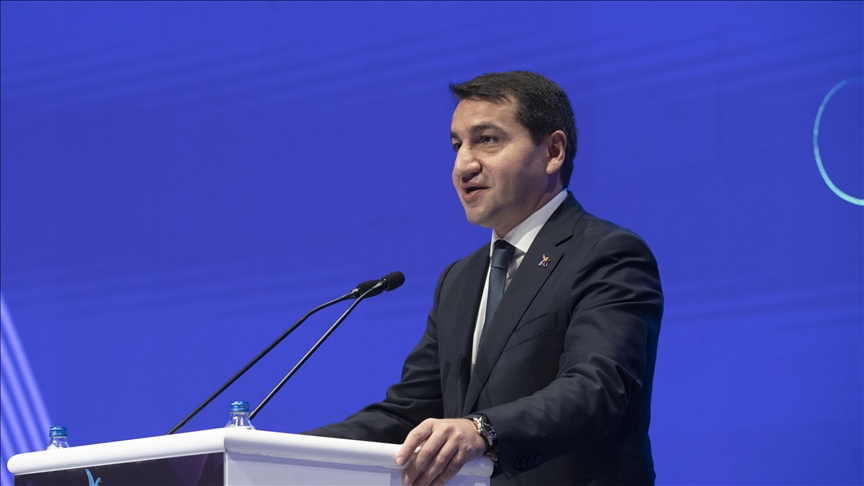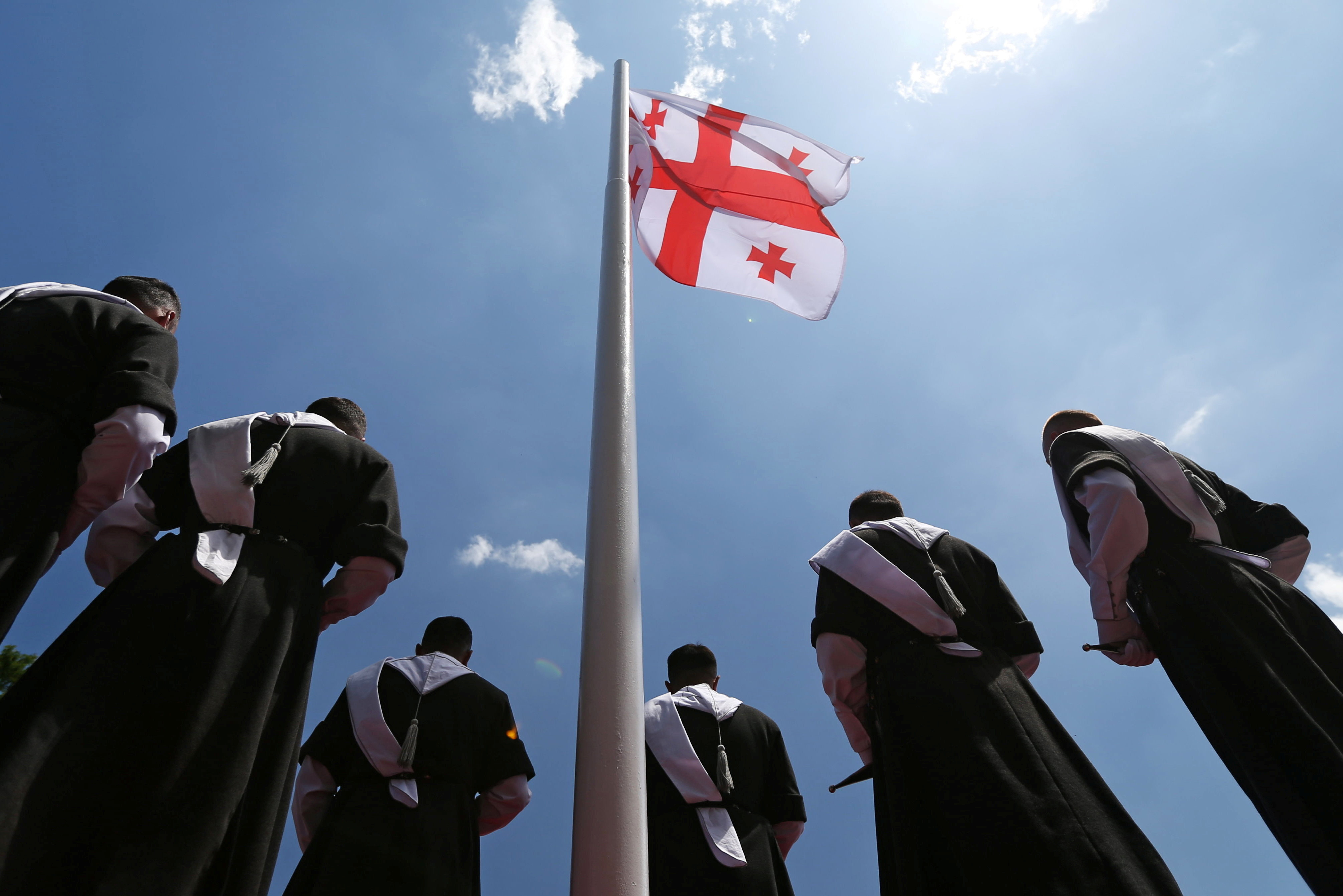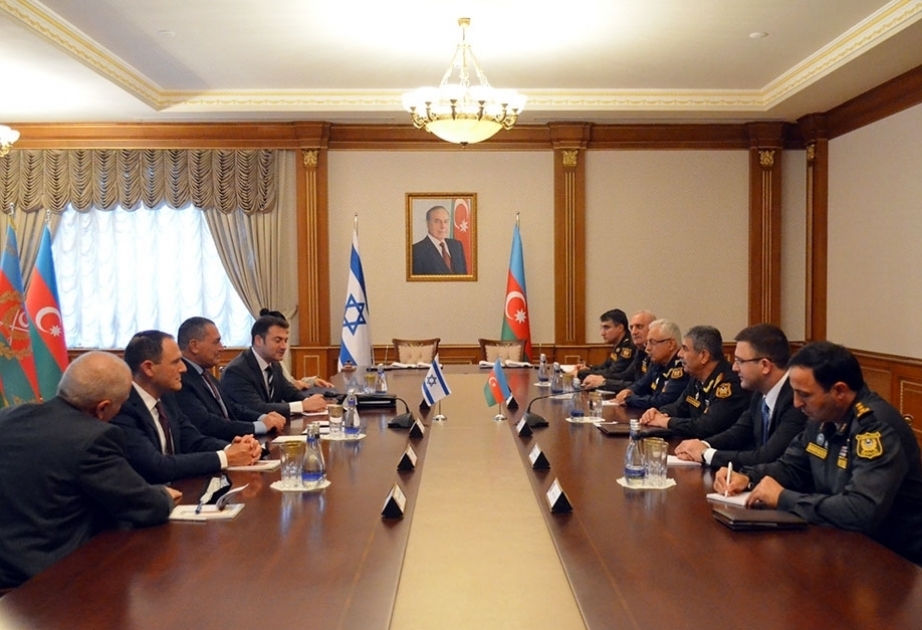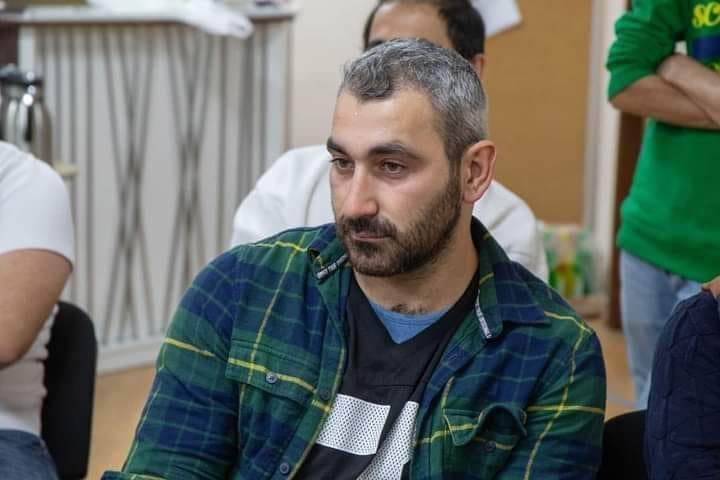
Since 2012, the small Middle Eastern country of Azerbaijan has invited hundreds of state lawmakers from Arizona and across the United States to take all-expenses paid trips halfway around the world to see the country firsthand.
The Azerbaijan government has paid for at least 20 trips for Arizona lawmakers, not to mention their guests or spouses, according to a review of annual Arizona financial disclosure statements and interviews with lawmakers. Several lawmakers have made repeat visits.
As part of its long-term strategy to beef up its lobbying forces in the U.S. and gain favor with American politicians, the government of Azerbaijan is betting on state legislatures as the breeding grounds for future members of Congress, and casting a net all the way to the Arizona Legislature and other American statehouses.
Another key benefit for the Azerbaijan government is the positive publicity associated with having American lawmakers tour the country and return home with praise for the ruling Azerbaijani regime, which has come under pressure at home and internationally for human rights violations.
Republican Sen. Don Shooter of Yuma, who has visited the country three times – in 2013, 2014 and in May of this year – said Azerbaijan is seeking long-term rewards in its quest to make American friends.
“You’ve got to commend them – their strategy is a pretty sound one,” Shooter said. “They ask state senators and representatives to come over and get familiar with their country and culture, knowing that in general, that’s the ranks for future Congress people.”
The 10-day trips are promoted as educational and relationship-building outings and economic development opportunities – a chance for state lawmakers to get to know America’s allies in a strategically important region. The Azerbaijani government pays for the trips, and coordinates with Turkish-American nonprofits to invite lawmakers to Azerbaijan, often with side trips to Turkey.
Click the link or the photo below for an interactive tour of the lawmakers’ trip to Azerbaijan in 2012, complete with museums, fancy restaurants and historical sites.

It’s easy to see why Arizona lawmakers would want to take advantage of a free trip to the oil-rich, former Soviet country.
Azerbaijan is a uniquely secular majority Muslim country of about 9.6 million people. It’s ostensibly a democratic republic, and bills itself as a model for religious tolerance, cultural acceptance and even women’s rights in the region. The country has diplomatic and military relations with Israel, and has been a strong ally of the U.S. in the war on terror. Its centuries-old architecture and cosmopolitan capital are among the country’s magnets for American and European tourists.
Friendly relations with U.S. and Israel
But the country’s friendly relations with the U.S. and Israel ensure hostile relations with its neighbors to the north and south, Russia and Iran. To the west, cutting through and bifurcating Azerbaijan, is its sworn enemy, Armenia. Azerbaijanis say their only respite lies to the east, in the Caspian Sea.
So it’s no surprise that the country has a keen interest in gaining favor of American politicians.
To that end, the country flies state lawmakers halfway around the world and treats them to accommodations in five-star hotels. Lawmakers receive bus tours of the countryside, including stops to see waterfalls, museums, Azerbaijani rug-makers and wine producers. They dine in posh restaurants with the country’s ruling class and corporate elite. On at least one tour, lawmakers stuffed their suitcases full of gifts, all courtesy of the Azerbaijani government and the state oil company, SOCAR.
The trips and gifts are offered free, with no strings attached. But after each visit, Azerbaijani officials have asked Arizona lawmakers to pass resolutions celebrating their newfound friends and extolling the country’s virtues.
Lawmakers have repeatedly obliged.
Since first visiting the country in 2012, Arizona legislators have passed three resolutions and read one official statement on the Senate floor honoring the country.
In that respect, Arizona lawmakers are not unique.
Lawmakers in at least 33 states have introduced similar, often identical, resolutions in the past few years. Many of the resolutions came after lawmakers were invited on similar trips to Azerbaijan.
The Arizona resolutions praise the country as having “a long-standing tradition of peaceful coexistence between various ethnic and religious communities.”
But the resolutions don’t mention Azerbaijan’s objectionable record on human, political and religious rights, allegations of stolen elections, or accusations of buying the favor of European officials through what critics call “caviar diplomacy.”
And by passing the resolutions at the behest of Azerbaijani officials, lawmakers are putting Arizona in the middle of an international war.
The resolutions are broadcast and printed in Azerbaijani state media as propaganda in the public relations battle between Azerbaijan and Armenia over a longstanding international land dispute that brought the countries to war in the 1990s, a war that technically continues today, despite a shaky cease-fire agreement.
Fun, but not a vacation
Lawmakers say the trips are a chance to meet America’s allies in a strategically important region.
And even though they have no say in U.S.-foreign policy, Arizona lawmakers who have gone on tours of Azerbaijan say their time was well spent, and they have no regrets.
An Arizona nonprofit called The Foundation for Inter-Cultural Dialogue frequently invited lawmakers on the trips on behalf of the Azerbaijani government. The foundation has close ties to a religious and social movement led by exiled Turkish Islamic scholar and imam Fethullah Gülen, whose followers are active in U.S. and international educational organizations. They have opened more than 100 charter schools throughout the United States, including several in Arizona.
The trips also included side-excursions to Turkey, where Arizona lawmakers met with followers of the Gülen Movement and toured schools affiliated with the movement.
Lawmakers said they were unaware of the total cost of the trip, but travel agents say it would easily cost thousands of dollars per person. A roundtrip ticket during the spring costs roughly $1,400, and 10-days in a five-star hotel would have easily cost another $1,500. Flights from Azerbaijan to Turkey would cost roughly $500. And that doesn’t include in-country luxury bus tours, meals, concert and museum tickets and other entertainment, or gifts.
Arizona law prohibits lawmakers from accepting gifts from lobbyists. But the state has no laws specifically banning lawmakers from accepting gifts from a foreign government, and because Azerbaijan isn’t registered as a lobbying entity in Arizona, the Secretary of State’s Office said there is no conflict in lawmakers accepting the free trips.
In fact, Secretary of State Michele Reagan, who made gift bans one of her top issues while she was in the Legislature, accepted a free trip to Azerbaijan while she was still a state senator in 2013.
Republican Sen. Adam Driggs of Phoenix was part of the first group of lawmakers to fly to the country in 2012.
After having met some of the nonprofit’s leaders at a function on the Ninth Floor, Driggs received an email inviting him to a “big event” in Azerbaijan called Eurovision.
Driggs described the concert as “the European version of ‘American Idol’, except it’s like 40 countries competing against each other and they all put up one singer or musical group.”
The invitation said the Azerbaijani government had reached out to the nonprofit looking for contacts to invite on a 10-day all-expenses paid trip to Azerbaijan and Turkey, courtesy of the Azerbaijani government. Already being familiar with the nonprofit, and having checked the law for any potential problems, Driggs and his wife decided to go.
The flight to Azerbaijan included a layover in Atlanta, where Driggs got the first glimpse of the scope of the event.
“When we landed in Atlanta, there were all these delegations from all over the states. Some of them were elected officials, and some of them were normal people. But there were all these Americans, and we were all going to Eurovision. And none of us had ever heard of Eurovision before,” he said.
But despite the fun of the concert, Driggs said the trip wasn’t a “vacation.” It was more like a work trip because he spent much of his time researching the country and meeting with elected officials there.
“If I got a free vacation, I would want to go to Disneyland, or I would want to go to Hawaii and take the golf clubs and lay on the beach. None of this international travel is like that, at least not that I’ve been on,” he said.
While in Azerbaijan, Driggs and the half-dozen other lawmakers on the 2012 trip received various gifts, including a miniature wall decorative Azerbaijani rug, spice sets, several bottles of wine, books, crystal plaques and hookahs.
Democratic Rep. Bruce Wheeler of Tucson, who went to Azerbaijan with a bipartisan delegation of lawmakers in 2013, said he didn’t receive any gifts on his trip, except a silk scarf that he later gave away.
And while he denounced any previous gift-giving by Azerbaijani officials, Wheeler offered a full-throated endorsement of the trips, which he said are modeled after pro-Israel lobby group AIPAC’s program to take members of Congress to Israel.
Like Israel, Azerbaijan is a U.S. ally that is surrounded by hostile neighbors. Both countries have a national interest in educating American decision-makers about their problems, he said.
And lawmakers have a responsibility to listen, Wheeler said.
“I didn’t know anything about Azerbaijan before this, except that they have a lot of oil and they were part of the Soviet Union. And now I know that they are democratic, they are secular, they have close ties to Israel, they are friends of the United States, and they’re worried about Russia and Iran. I think that’s an important lesson,” he said.
Shooter, likewise, said the trips are an important tool for state lawmakers to learn about Azerbaijan, even if lawmakers don’t actually have any authority over international affairs. During the last legislative session, he read from the Senate floor a statement honoring the 23rd anniversary of a battle in Azerbaijan’s war with Armenia.
“I really believe that we need to support them. And I certainly don’t have any influence in foreign policy or anything like that. But what I can do is things like that resolution to say, ‘We stand with you. We appreciate anybody that wants to be free and independent of tyranny,’” Shooter said.
Persecution of human rights activists
But human rights organizations say Azerbaijan is not free and the country’s leaders are becoming increasing tyrannical.
In fact, Freedom House, an independent watchdog organization dedicated to the expansion of freedom around the world, puts Azerbaijan squarely in the “not free” category.
The organization compiles an annual Freedom in the World report scoring countries on a variety of criteria, including political rights and civil liberties. On a scale from one through seven, with seven being the worst, the organization scored Azerbaijan a six in its 2015 report.
“The (Azerbaijani) government intensified its already severe persecution of human rights activists, independent journalists, and opposition figures during the year. The charges used against them included treason, tax evasion, illegal business activity, and possession of illegal drugs or weapons. Even after a raft of presidential pardons in late December, human rights groups counted more than 90 political prisoners still behind bars,” the report states.
Corruption is rampant in the country, according to the report.
What’s more, human rights in the country have been deteriorating and its ranking has been on a downhill slide for years. The downward trend continued in 2015 due to an “intensified crackdown on dissent, including the imprisonment and abuse of human rights advocates and journalists.”
But it’s not just political dissidents and reporters feeling the impact of the Azerbaijani government’s crackdown.
Religious coexistence is one of the country’s major bragging points to American lawmakers, and officials emphasize on the trips that the country accepts all faiths.
But Azerbaijan is secular to the point of restricting religious freedoms, including the basic right to assemble and worship, according to the U.S. State Department’s annual International Religious Freedom Report.
The report notes that the Azerbaijani constitution provides for religious freedom, but “laws and policies restrict religious freedom in practice, particularly for some religious minorities.”
For example, authorities must review and approve all religious literature for import or sale. The punishment for producing, importing or selling unapproved religious literature can include fines up to $8,750 or two years in jail, according to the State Department.
Religious organizations must also be licensed, and some have complained the Azerbaijani government is delaying or refusing to license their churches. Jehovah’s Witnesses report repeated raids by government officials on their meeting places.
And the country isn’t exactly a hotbed of religious diversity: Upwards of 95 percent of the population is Islamic.
Democratic Sen. Steve Farley of Tucson, who accepted trips to Azerbaijan in 2012 and 2013, said the disconnect between the official Azerbaijani rhetoric and reality became apparent on the highway from the airport in the nation’s capital, Baku. The large sound-barrier walls lining the highways couldn’t block out the view of “more poverty than they would like to show.”
Farley wanted to get a “more rounded” view of the country than the government tour guides provided. On one of his trips, without telling his hosts, he met with an activist from Amnesty International to talk about restrictions on the press, among other human rights concerns.
The country is one of the most censored in the world, according to Reporters Without Borders’ annual World Press Freedom Index. Out of 180 countries included in the report, Azerbaijan checks in at the 162nd spot for press freedom in 2015. Freedom of speech in the country has been on a steady decline since 2002, when Azerbaijan occupied the 101st slot on Reporters Without Borders’ list.
Farley said he left Azerbaijan with the impression that the country is doing a good job at providing a better quality of life for its people, “as long as the people don’t complain about it.”
“That’s a little difficult to deal with for an American, but it’s not unusual among former Soviet countries,” he added.
Perhaps most alarmingly, just a few months after lawmakers visited the country in 2013, Azerbaijani President Ilham Aliyev won re-election in what was widely derided as a sham vote.
The U.S. State Department and international election monitors said the election did not live up to international standards.
In a press statement, the department stated that the “pre-election environment was characterized by a lack of balanced media coverage of candidates, continued restrictions on fundamental freedoms of assembly and expression, and a deficient candidate registration process that, taken together, resulted in an uneven playing field for candidates. On Election Day, observers from the U.S. Embassy in Baku, like their (European) counterparts, noted serious violations of election procedures, including ballot box stuffing.”
The election and Azerbaijan’s campaign to silence critics on the Parliamentary Assembly of the Council of Europe (PACE) by inviting them on lavish trips with extravagant gifts led one European think tank to coin the term “caviar diplomacy” to describe the country’s outreach strategy.
Still, Wheeler said Azerbaijan is much more open and free than many of its neighbors, and defended the country as a fledgling democracy that is still struggling to find its way.
He noted that the country has only existed for a few decades, and said even the U.S. still has severe problems with its electoral system, pointing to “dark money” and the 2000 election when George W. Bush won, despite losing the popular vote.
Catching up with Armenia
Besides coming back with mementos like decorative rugs, spices and wine, lawmakers have been returning from Azerbaijan with official legislative resolutions drafted by the country’s consul general in Los Angeles. They praise the country and insert the Arizona Legislature into the ongoing international territory dispute between Azerbaijan and its nemesis neighbor, Armenia.
Armenians are frequently listed among the most formidable lobbying forces in U.S. politics, and in recent years, Azerbaijan has implemented a 50-state lobbying strategy to catch up.
Wheeler said Azerbaijan is clearly attempting to change the narrative pushed by the Armenian lobby.
“The second motivation for (Azerbaijan), besides Iran and Russia being threats, is the occupation of the Azerbaijan territory by Armenian and Russian troops. Because the Armenians have a strong lobby… the Azerbaijanis want to begin to counter it,” he said.
In 2009, Azerbaijan government and its state-owned oil company started hiring high-priced K Street lobbying firms to try to bring their message to the United States Congress. Since then, the small country has landed on the top-10 list of foreign entities spending to influence U.S. policy, according to The Sunlight Foundation’s analysis of U.S. Department of Justice records.
The state resolutions praise the country’s culture of religious and social tolerance. And, importantly to Azerbaijani officials, the resolutions declare Arizona’s support for the country’s “territorial integrity” in the disputed Nagorno-Karabakh region.
That territorial integrity is a sticking point for both Azerbaijanis and Armenians, who both claim the land should belong to them and who fought a bloody war over the land. The war is technically still ongoing, although a frequently-ignored cease fire has been in place since 1994.
Just a few years ago, leaders of Azerbaijan and Armenia warned that ceasefire could be in danger. Bloody conflicts occasionally still erupt in the disputed Nagorno-Karabakh region, which is technically in Azerbaijan, but residents consider it an autonomous region aligned with Armenia.
And while the pro-Azerbaijan resolutions have been sweeping statehouses nationwide, Armenian lobbying groups have been on the defensive.
Last year, Aram Hamparian, the executive director of the Armenian National Committee of America, penned an open letter to state lawmakers around the country asking them to oppose the barrage of pro-Azerbaijani resolutions.
In the letter, Hamparian stated that Azerbaijan president Ilham Aliyev “is pressuring state legislatures across our country into joining his angry and increasingly violent attacks upon his Christian Armenian neighbor.”
Pro-Azerbaijan resolutions have flown through the Arizona House and Senate unanimously, but in other states, the Azerbaijan lobby has not been so successful.
In January, Colorado pulled a pro-Azerbaijan resolution before it made it to the floor, prompting officials from the Armenian National Committee of America to thank the state for rejecting the resolutions, affirming that Colorado “is not for sale to the oil-rich and corrupt regime of Ilham Aliyev’s Azerbaijan.”
At least five other states have also killed what Armenians call “factually inaccurate” and “anti-Armenian” resolutions.
But Arizona lawmakers don’t see any problem with the resolutions.
Driggs, who sponsored a resolution honoring the country in 2013 after taking his first trip there in 2012, said he had to “tone down” the version the Azerbaijani consulate wanted him to sponsor, for fear of upsetting the Armenians.
Still, Driggs said the resolutions aren’t “real legislation,” and “had very little to do with the trip.”
a














